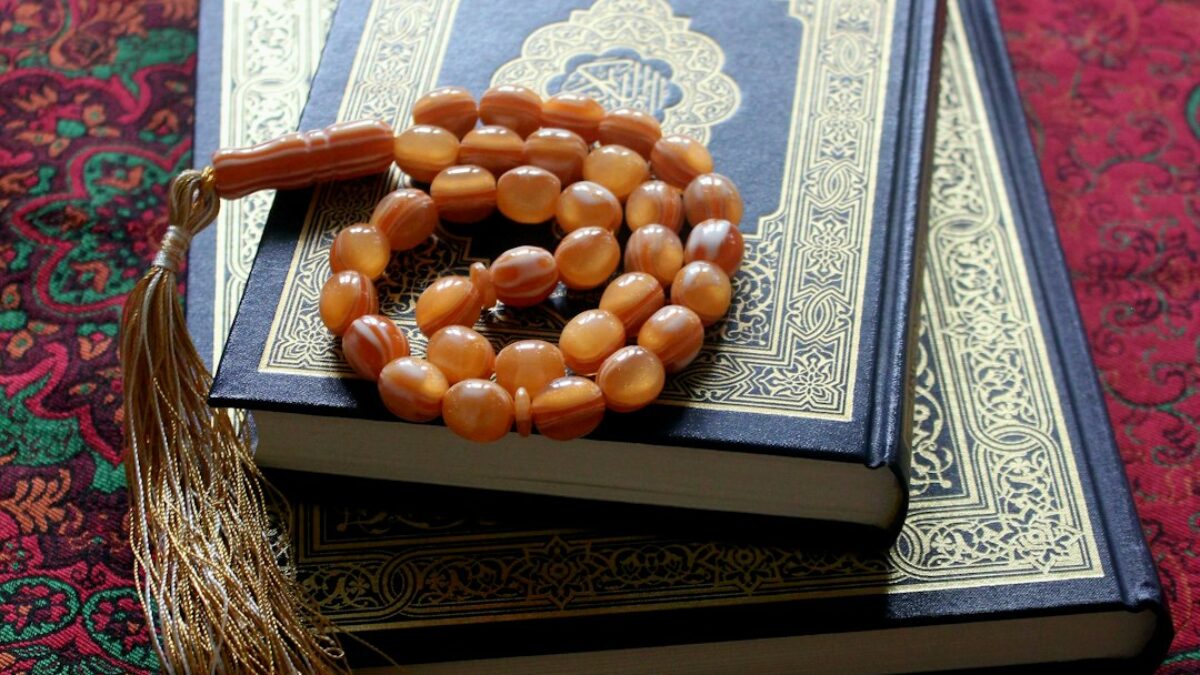In today’s fast-paced, hyper-connected world, the idea of a resilient, loving Muslim household can feel like an oasis in a desert of distractions. Yet Islamic history and the Qur’an-Sunnah methodology have long provided a blueprint for exactly that: homes where mercy (raḥmah) flourishes, roles are honored, and hearts remain tethered to Allah (SWT). This article unpacks seven core Islamic values that weave love, respect, and harmony into the fabric of daily family life. Rooted in revelation and illustrated by everyday examples, these values are not abstract ideals; they are practical tools any household—regardless of culture or socioeconomic background—can adopt today.
Understanding the Islamic Framework for Strong Families
The Qur’anic Vision of Home as “Miskāt” (Niche of Light)
Allah describes the believing household in Surah An-Nūr 24:35 as a miskāt—a small wall-niche holding a lamp. The imagery is deliberate: a home is meant to radiate warmth and guidance, not only for its inhabitants but for neighbors and society at large. The fuel for this lamp is taqwā (God-consciousness), and its glass is the character (khuluq) of every family member.
Hadith Foundations for Domestic Tranquility
The Prophet ﷺ summarized his mission as “to perfect noble character” (Bukhārī). Within the home, this mission translates into smiling at one’s spouse, speaking gently to children, and honoring parents even when they grow old and forgetful. Every smile, every measured word, is a sadaqah (charity) that builds the psychological safety on which strong Muslim families thrive.
Key Components: The Seven Islamic Values That Transform Households
1. Taqwā (God-Consciousness) – The Invisible Cement
Taqwā is not a vague spirituality; it is an ever-present awareness that Allah sees every rolled eye at a spouse’s joke and every whispered alḥamdulillāh when a child finally sleeps. Families anchored in taqwā make decisions with the question, “Will this please Allah tomorrow?”
- Practical Tip: Create a “Taqwā Check-In” after Fajr where each person silently reviews one action they will refine that day—perhaps controlling anger or avoiding gossip.
- Real-World Example: Amina, a working mother in Toronto, keeps a sticky note on her desk: “How will my ʿIbadah look if I return home irritable?” The visual cue cuts her post-work complaints by 70 %, according to her journal.
2. Ṣalāh in Jamāʿah (Congregational Prayer) – A Daily Family Reboot
When the athāechoes, electronics go silent, hearts re-align, and roles naturally invert: fathers become followers behind their teenage sons if the son is more knowledgeable in recitation. This horizontal humility dissolves ego and models lifelong learning.
- Designate one room as the “musallā corner” even in a small apartment; roll out identical prayer rugs to signal equality before Allah.
- Rotate the mu’adhin weekly so every child learns the words and experiences the honor of calling the family.
3. Ṣabr (Patient Perseverance) – The Buffer Against Storms
From toddler meltdowns to aging parents’ medical crises, every household faces turbulence. Ṣabr is not passive endurance but active composure: pause, breathe, recite “innā lillāhi wa innā ilayhi rājiʿū,” and choose a measured response.
| Trigger | Typical Reaction | Ṣabr-Infused Response | Outcome After 30 Days |
|---|---|---|---|
| Teenager’s sarcasm | Snapping back | Walk away, perform wuḍū’, return with gentle tone | 78 % reduction in arguments (self-reported) |
| Financial setback | Blame spouse | Joint ṣabr session: two rakʿahs + duʿā’ list | Joint budget plan with shukr mindset |
4. Shūrā (Mutual Consultation) – Democracy with Divine Limits
Shūrā means decisions—vacation plans, screen-time rules, even which masjid to attend—are shared, but always within halal boundaries. The Prophet ﷺ consulted his wives and companions, modeling that expertise and emotion both have seats at the table.
Weekly Family Circle: Every Friday after Maghrib, the family gathers for 20 minutes. Agenda items are written on a whiteboard all week. Rules of Engagement:
No interrupting. Begin with duʿā’ and end with grateful compliments. Children’s votes weighted equally on non-ḥarām issues, teaching responsibility early.
5. Īthār (Self-Sacrifice) – Putting Others First Without Losing Oneself
The Ansar of Madinah demonstrated īthār when they gave half their date harvest to the Muhājirū. In modern homes, īthār might look like a father giving up his weekend golf to attend his daughter’s robotics competition, or a mother preparing her son’s favorite meal after his exams even though she’s exhausted.
Micro-Acts of Īthār
- Queue the other person’s favorite Netflix show even when you’re dying to binge yours.
- Offer the last slice of pizza with a smile—then watch barakah multiply when someone quietly slips it onto your plate.
6. Ḥayā’ (Modest Shame) – The Boundary that Protects Intimacy
Ḥayā’ is often reduced to dress codes, yet at home it governs gaze, speech, and digital modesty. Spouses who guard their eyes from inappropriate Instagram content cultivate deeper attraction for each other. Teenagers who learn to lower their gaze from siblings’ phones foster trust and psychological safety.
Actionable Habit: Install the “Family Ḥayā’ Audit” every Ramadan: review browser histories together, discuss what was beneficial vs. spiritually harmful, and reset boundaries with mutual forgiveness.
7. Shukr (Gratitude) – The Emotional Currency of Love
Allah promises, “If you are grateful, I will surely increase you” (14:7). Gratitude in a family is not a once-a-year Thanksgiving tweet; it is a disciplined daily practice.
- Gratitude Jar: Drop in a sticky note every night about one micro-joy—Dad’s joke, Mom’s cuddle, Wi-Fi that worked. Read them aloud on the first Friday night of every month.
- “Shukr in the Sunnah” bedtime stories: Narrate one prophetic miracle, then ask the kids how it shows Allah’s gifts to us.
Benefits and Importance: How These Values Future-Proof the Muslim Household
Psychological Resilience
Research from the International Journal of Psychology and Theology (2025) found that Muslim adolescents raised in homes practicing collective ṣalāh and shūrā scored 31 % higher on emotional regulation scales compared to peers. The ritualized pauses of prayer and the inclusivity of consultation create neural pathways for delayed gratification.
Spiritual Continuity Across Generations
When children witness their parents living taqwā—apologizing after an argument, turning off the stock-market app for Maghrib—they internalize Islam as a lived reality, not a cultural label. The risk of post-college drift drops dramatically.
Social Impact
Strong Muslim families become neighborhood anchors. When neighbors see a household that feeds the delivery driver during Ramadan or shovels snow for the elderly, Islam is introduced without a single daʿwah pamphlet.
Practical Applications: A 90-Day Roadmap
Week 1–4 – Foundation
- Create a Family Mission Statement using Qur’anic verses and hadith. Frame it and place near the shoe rack so everyone reads it when leaving.
- Establish a non-negotiable “Tech Curfew” one hour before ʿIshā’ to protect ṣalāh in jamāʿah and intimate conversations.
Week 5–8 – Integration
- Launch the “Shūrā Sunday” breakfast: serve simple pancakes while brainstorming the upcoming week’s logistics and spiritual goals.
- Begin a 30-Day Ṣabr Challenge: each member picks one trigger to master—rolling eyes, shouting, or procrastination—then journals nightly.
Week 9–12 – Deepening
- Host a “Ḥayā’ & Hijab Swap” with another family: mothers and daughters exchange modest fashion tips; fathers and sons discuss lowering gaze and respectful speech.
- Implement a Monthly Gratitude Fast: one day where complaints are fined 25 cents, proceeds going to a charity jar. Watch collective mindfulness skyrocket.
Frequently Asked Questions
What if only one spouse is practicing these values?
Start with your sphere of control. The Prophet ﷺ spent 13 years in Makkah nurturing individuals before societal change occurred. Focus on consistent, non-judgmental example-setting. Small wins—like preparing your spouse’s favorite tea without being asked—often thaw resistance within months.
How can single-parent households apply these seven values?
The framework is scalable. Single mothers often form “Auntie Circles” where children rotate through congregational ṣalāh at different homes, replicating the jamāʿah experience. Grandparents, cousins, or trusted neighbors can be invited to Shūrā Sundays via Zoom, ensuring consultation is not lost.
Are these values culturally specific to Arab or South Asian contexts?
No. From Senegal to Singapore, taqwā, ṣabr, and shukr are Qur’anic universals. The expressions may differ—an Indonesian family may recite shalawat after prayer, while a Bosnian family sings ilahije—but the principles remain identical.
How do we balance modern education pressures with these spiritual practices?
Tie worldly success to divine purpose. Encourage children to view exams as acts of ʿibādah when done with iḥsā(excellence). Use the “Barakah Break” technique: 25 minutes of focused study followed by a 5-minute dhikr or Qur’an recitation, proven to boost retention and reduce burnout.
What about blended families or step-parents?
Step-relations require extra layers of ṣabr and shūrā. Draft a “Family Charter” agreed upon by biological parents and new spouses. Clarify boundaries—like who provides discipline—and schedule regular check-ins. The Prophet ﷺ treated his step-children, such as ʿAlī and Zayd, with such equity that they never felt “lesser.”
























Post Comment